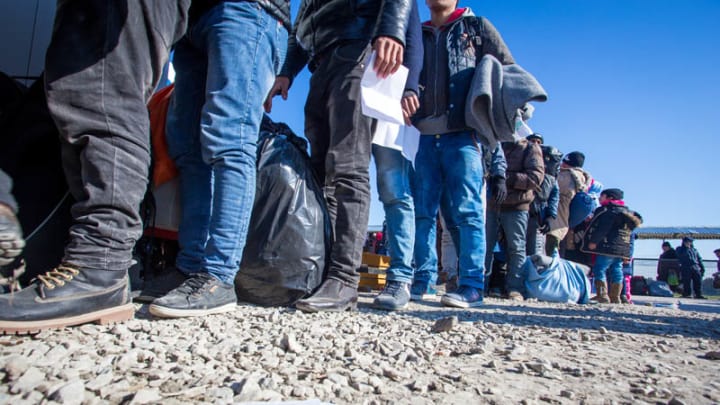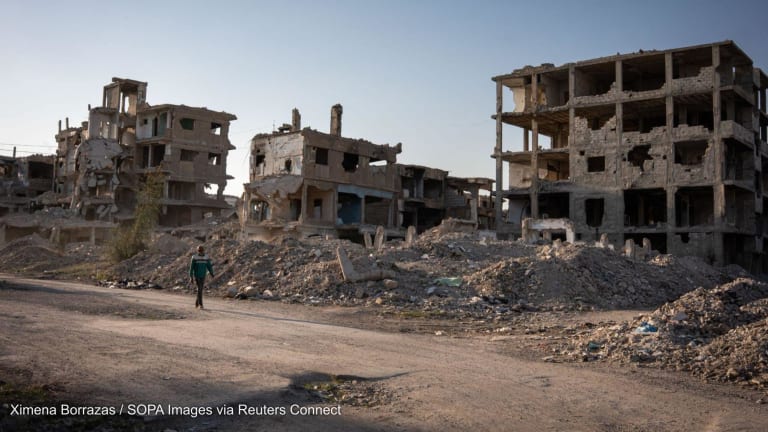
If the goal of humanitarian assistance is to provide for the immediate and long-term needs of people who are suffering — whether from natural disaster or man-made hardship — it is quite evident that the effort in Syria is failing. It’s not for lack of trying. Despite the best intentions of hundreds of local, national and international humanitarian groups, the amount and type of assistance required in this crisis is not reaching those who need it most.
The responsibility incumbent upon each of us in the humanitarian sector is to understand why this situation exists and what exactly can be done to resolve it. The first, and most obvious, reason that the aid effort is failing is because political maneuvering is controlling humanitarian access. Permission for access to aid is being used to entice populations into supporting local truce agreements. Those who agree to such a condition may well receive some of the assistance they need, though certainly not all of it. And those who choose not to adhere to such demands are unfairly penalized.
The second reason is that ongoing Syria peace talks in Geneva do not take into account the wide range of humanitarian actors inside Syria, focusing instead only on permissions for UN convoys. The work of Syrian local groups and numerous humanitarian organizations working across the borders of Syria is critical to reaching those most in need.
Third, when aid does reach its intended population in Syria, it is often insufficient. While food convoys are certainly welcome, they are not enough to ensure sustainability for the Syrian people. Syrians are as proud of their independence as you or I; they don’t want to depend on handouts. They want community services to resume, and they want to be able to work to support their own families. And yes, this is possible in a war zone.
Recognizing the key contributors to a problem is not the same as addressing and solving those issues. Toward that end, Mercy Corps recently signed on with 23 other NGOs working in Syria to focus the attention of the International Syria Support Group and the Humanitarian Task Force to address the real needs of the Syrian people. The intent is to hold the parties of the Syrian conflict accountable and to find humanitarian solutions that will positively support the Syrian people. We believe this can be achieved through four basic steps:
1. The delivery of basic aid and commodities, rather than being an end goal, must be used to support the long-term resilience of Syrians. Humanitarian access cannot be a one-time or occasional intervention, or it will continue to fail. But when used to support things such as physical and mental health care, sanitation and child-protection services, it will fill a more lasting, effective role.
2. Impartial needs assessments must drive the delivery of future aid convoys to the Syrian people. This can only be achieved if local Syrian organizations and stakeholders are given proper access. Until that happens, assistance will be determined by politically driven decisions and thus be rendered largely ineffective.
3. The ISSG must push for all humanitarian actors to freely conduct operations in Syria. It’s not enough for U.N. agencies to have access. Many Syrian humanitarian workers are facing great personal risk as they go about their work. They must be formally recognized as impartial aid providers, which would go a long way toward ensuring their personal protection and effectiveness.
4. Humanitarian aid can no longer be used as a weapon of war. Humanitarian need must be the determining factor for when and where assistance is delivered within Syria. Allowing aid to be used as a political bargaining chip erodes the effectiveness of the relief effort. The ISSG must strive to prevent future attempts to link humanitarian access to political negotiations.
For five years, people have been saying the time to fix efforts is now — but we still haven’t addressed the issues. The Syrian conflict shows few concrete signs of abating. Recent violations of the Munich cease-fire agreement have put an end to several weeks of relative calm within Syria. Last month, more than 50 civilians were reported killed in an aerial bombardment in a vegetable market in Idlib. We cannot continue to ignore the countless people who are left to fend for themselves. Let’s join together to ensure that everyone who needs help gets it.
Join the Devex community and access more in-depth analysis, breaking news and business advice — and a host of other services — on international development, humanitarian aid and global health.




